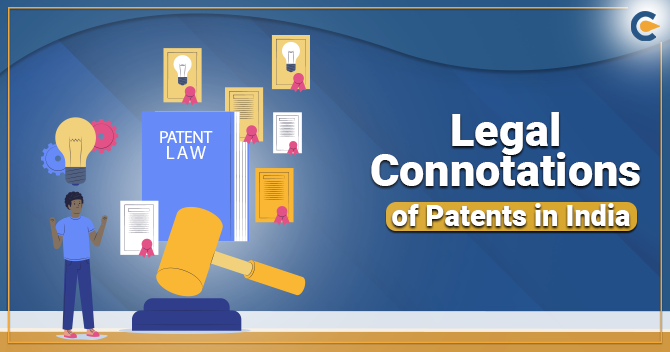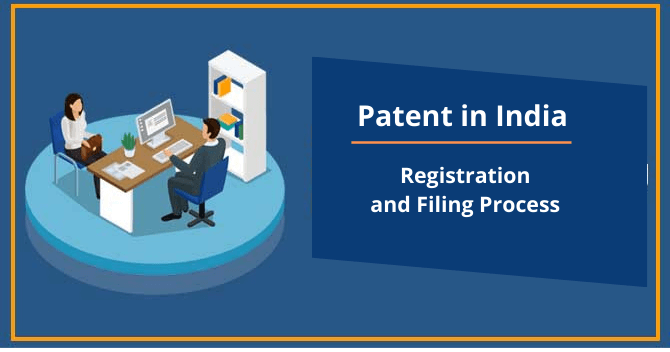The grant of Patents in India is subjected to a long list of perquisites that are hard to comply with. From India’s law standpoint, the Patent is only granted to an invention that possesses uniqueness and serves a specific purpose. Besides, the invention should be useful in industrial applications. The service life of a patent is about 20 years in India, and after the expiration date, the invention becomes publically accessible.
No outsider is allowed to impersonate, trade, or distribute the registered invention as it is deemed as a violation of the law under the Patent Act. Patent registration in our country plays a pivotal role in safeguarding the new invention and ideas from being exploited by infringers. At present, the Patent law provides a long list of requisite regarding what can or cannot be patented. In this blog, we would explore this aspect in brief.
What is Patent as per the Patent Act?
It is referred to exclusive rights granted by the Indian government to the inventor for his invention for a prescribed timeline. This right prevents others from copying or trading the invention without the inventor’s permission.
Patent entails all the invention related to process or product that is unique and innovative encompassing distinctive steps & favors the industrial application.
Read our article:Detailed Process of Patent Registration in India
Essential Points Regarding the Patent
- A patent possesses a territorial restriction- meaning that it renders legal coverage in the particular nation where the Patent has been register. Therefore, the Patents in India shall not provide any protection to the creator seeking to exercise the rights beyond the Indian Territory. At present, the grant of Patents in India does not favor the concept of worldwide protection.
- If a creator wishes to avail the global right to a patent over this invention or process, an independent application is required to be filed in different nations within the timeframe of 12 months from the date of filing in India. Henceforth, a separate Patent is needed for each country to ensure the full-fledged protection for the invention from possible counterfeiting.
- Application regarding the Patent can be made either by the inventor or his assignee, either on an individual basis or combined with any other individual.
- An application for Patent ought to be filed prior to public disclosure of the invention. Contravention of such a requirement will lead to the disruption of the Patent’s objective.
- In our country, a patent is granted for 20 years from the date of application filing.
- The invention related to the process or methods of tangible & non-living substances by bioconversion comes under the patentable category.
- Some discoveries don’t fit the Patent’s framework. The person or any other entity can request a patent related to the field of scientific nature or a law of nature.
- As per the European patent convention, patents favor only those notions or ideas that are new unique, and entail a distinctive procedure, and capable of industrial application. In our country, the invention should relate to some article, machinery, or substance made by manufacturing or substance for manufacturing.
Prerequisites Related to the Patents in India
As per the Patent Act in India, an invention must stick around the following traits of invention to become eligible for grant of patent.


Novelty/Uniqueness
First and foremost requirement to obtain a patent is that the proposed invention should not bear any resemblance with the previous works in India. The invention should excel on uniqueness in different aspects as compared to the prior art.
If the concerned authority perceived the invention as the projection of the prior art in any aspect, it would be deemed non-patentable. Novelty is the non-negotiable aspect of an invention seeking a grant of Patents in India[1].
Non-obviousness
It must adhere to distinctiveness from the society’s viewpoint.
Industrial application
It must have industrial applicability. By this, it means that the Patents in India doesn’t serve illegal & immoral purposes.
Restrictions under the Patent Act in India
- As per the European Patent Convention, an idea falls under the non-patentable category if it entails medical treatment methods, a new plant or animal varieties.
- In the Indian Law, section 3 & 5, Patent Act, 1970 renders a list of inventions that falls outside the scope of the grant of Patent.
- An idea that claims anything contrary to the already existed natural laws. An invention, the primary use of which would be opposite to laws or harmful to the public health.
- A substance produced by mixing, resulting in aggregation of the component’s properties thereof, or a process for producing such substance. Inventions reflecting the duplicate version of the already existed devices cannot be patented.
- Any process related to surgical, medicinal, or other treatment of human beings or any process encompassing the similar treatment of any plant or animal to cure them against the possible infection.
- Any process relating to horticulture or agriculture.
- Grants of Patent is not allowed for Atomic energy, for example, the invention related to radioactive substances such as lithium, thorium, uranium, radium, beryllium, and more as prescribed by the Central Government.
- The topography related to the Integrated Circuits (aka ICs) is not covered under the patentable category.
- Machines primarily design for playing gambling cannot be patented.
Advantages of Getting a Patent Registered in India
- Renders protection against the theft of your invention
- Confers exclusive rights that maintain the integrity of the invention.
- Easy to build merchandise & commercialize
- Create chances of market monopolization.
- Higher profit margins and more monetary value.
Conclusion
The Patents in India is hard to come by since it excels on the distinctiveness and uniqueness. Anybody who is about to file a patent application for their creation must cross check its traits with the aforementioned stipulates. If you find anything out of the league, you probably won’t get a patent.
Nonetheless, getting a Patents in India is nothing short of a daunting undertaking as it required an individual to fulfill a long list of requirements. And that’s where CorpBiz comes into the picture. We can make your parenting journey as seamless as possible by covering all the essential aspects that inhibit the chance of getting the Patent.
Read our article:5 Remarkable Benefits of the Patent Registration in India











